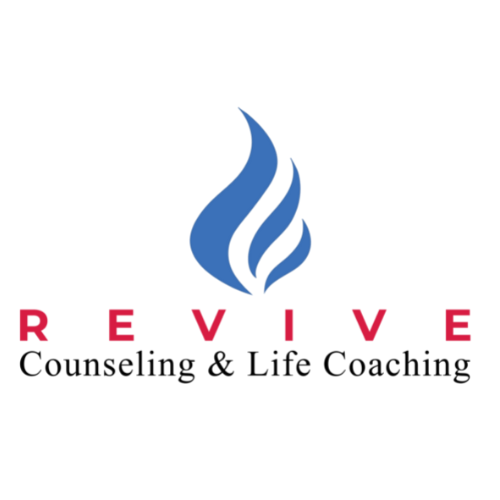Call us now: 918-740-3149
Effective study skills are crucial for academic success, and teenager counseling can greatly contribute to the development and enhancement of these skills. This article explores how counseling interventions can help adolescents improve their study skills, leading to better academic performance and increased confidence in their abilities.
- Time Management: teenager counseling offers valuable guidance on time management, teaching students how to prioritize tasks, set realistic goals, and create a study schedule. Counselors help students identify time-wasting activities, manage distractions, and allocate sufficient time for studying, homework, and leisure activities. By improving time management skills, students can make the most of their study time and achieve better academic results.
- Organization and Planning: Counselors assist adolescents in developing organizational skills that contribute to effective studying. They teach students how to create and maintain an organized study space, keep track of assignments and deadlines, and utilize tools such as planners or digital calendars. By cultivating organization and planning skills, students can reduce stress, stay on top of their academic responsibilities, and complete tasks more efficiently.
- Note-Taking Techniques: Note-taking is an essential skill for effective learning, and adolescent counseling can provide strategies to improve this skill. Counselors teach students various note-taking methods, such as summarizing, highlighting, or creating concept maps. By mastering note-taking techniques, students can better comprehend and retain information, leading to improved performance in exams and assignments.
- Reading Comprehension: Adolescent counseling can enhance students’ reading comprehension skills, which are crucial for academic success. Counselors work with students to improve their active reading techniques, such as previewing texts, annotating key points, and summarizing information. By developing strong reading comprehension skills, students can better understand complex texts, extract important information, and engage critically with academic material.
- Test Preparation Strategies: Preparing for exams can be stressful for many students, but adolescent counseling can provide valuable strategies to alleviate anxiety and improve test performance. Counselors teach students effective study methods, such as creating study guides, using mnemonic devices, practicing with sample questions, and implementing self-assessment techniques. These strategies enhance students’ confidence, reduce test-related anxiety, and improve their ability to demonstrate their knowledge during exams.
Conclusion: teenager counseling plays a crucial role in enhancing students’ study skills, leading to improved academic performance and increased confidence. By addressing time management, organization and planning, note-taking techniques, reading comprehension, and test preparation strategies, counseling equips students with the necessary tools to excel in their studies. Through counseling interventions, adolescents can develop lifelong study skills that contribute to their academic success and overall well-being contact adam kennedy at reviveclc.com or at 918-740-3149
Teenager Counseling | Motivate Your Family!
Motivation and resilience are key factors that influence academic performance. teenager counseling provides valuable support in building these qualities, helping students overcome obstacles, stay focused, and achieve their academic goals. This article explores how counseling interventions can foster motivation and resilience in adolescents, leading to improved performance and a positive attitude towards learning.
- Discovering Intrinsic Motivation: Adolescent counseling helps students identify their intrinsic motivation, which comes from within and drives them to succeed academically. Counselors engage students in self-reflection, exploring their interests, passions, and long-term goals. By understanding their motivations, students can develop a sense of purpose and commitment to their studies, leading to increased engagement and better academic outcomes.
- Goal Setting and Action Planning: Counselors assist students in setting meaningful academic goals and developing action plans to achieve them. Through counseling sessions, students learn to set realistic and achievable goals, break them down into smaller steps, and create a timeline for completion. By setting goals and developing action plans, students gain clarity and direction, enhancing their motivation and focus.
- Overcoming Obstacles and Building Resilience: teenager counseling helps students develop resilience, enabling them to overcome challenges and setbacks in their academic journey. Counselors provide strategies for managing stress, coping with failures, and reframing negative experiences. By cultivating resilience, students learn to bounce back from setbacks, persist in the face of adversity, and maintain a positive attitude towards their studies.
- Self-Efficacy and Confidence: Counseling interventions can boost students’ self-efficacy, which is their belief in their ability to succeed academically. Through counseling, students can identify their strengths, celebrate their achievements, and challenge negative self-perceptions. As their self-efficacy grows, students become more confident in their abilities, take on academic challenges with enthusiasm, and perform better in their studies.
- Positive Reinforcement and Rewards: Adolescent counseling emphasizes the importance of positive reinforcement and rewards in fostering motivation. Counselors encourage parents and educators to provide constructive feedback, acknowledge students’ efforts, and celebrate their successes. This positive reinforcement enhances students’ motivation, encourages continued effort, and reinforces the connection between hard work and academic achievement.
Conclusion: teenager counseling plays a significant role in building motivation and resilience, leading to improved academic performance and a positive attitude towards learning. By helping students discover intrinsic motivation, set meaningful goals, overcome obstacles, build resilience, boost self-efficacy, and experience positive reinforcement, counseling equips students with the tools they need to excel academically. Through counseling interventions, adolescents develop a strong sense of motivation, resilience, and confidence that positively impact their academic journey and future success contact adam kennedy at reviveclc.com or at 918-740-3149
